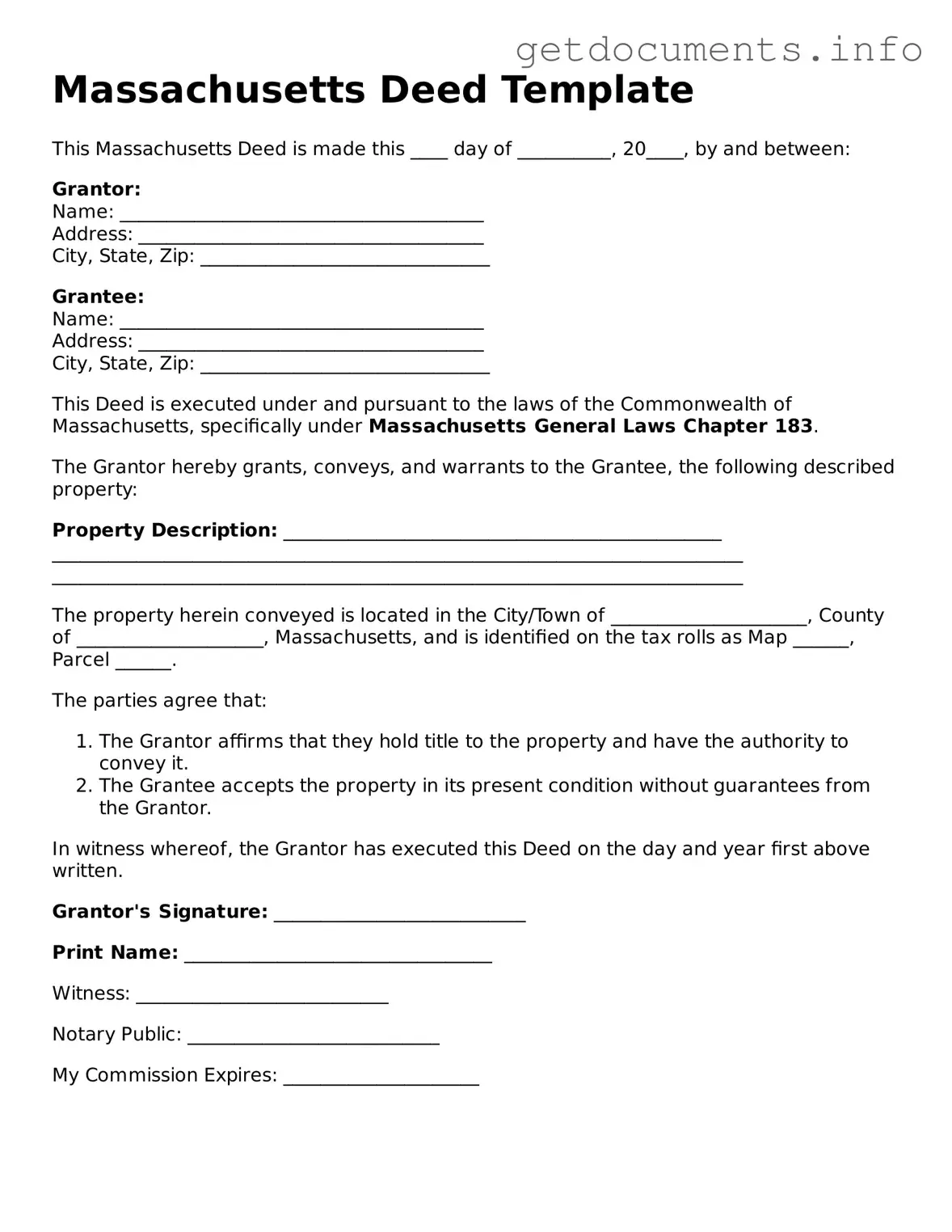Free Deed Template for Massachusetts
A Massachusetts Deed form is a legal document used to transfer ownership of real estate from one party to another. This form ensures that the transaction is recorded and recognized by the state, providing protection for both the buyer and the seller. If you're ready to take the next step in your property transaction, consider filling out the form by clicking the button below.
Access Deed Editor

Free Deed Template for Massachusetts
Access Deed Editor
Got places to be? Complete the form fast
Fill out Deed online and avoid printing or scanning.
Access Deed Editor
or
⇩ PDF File
